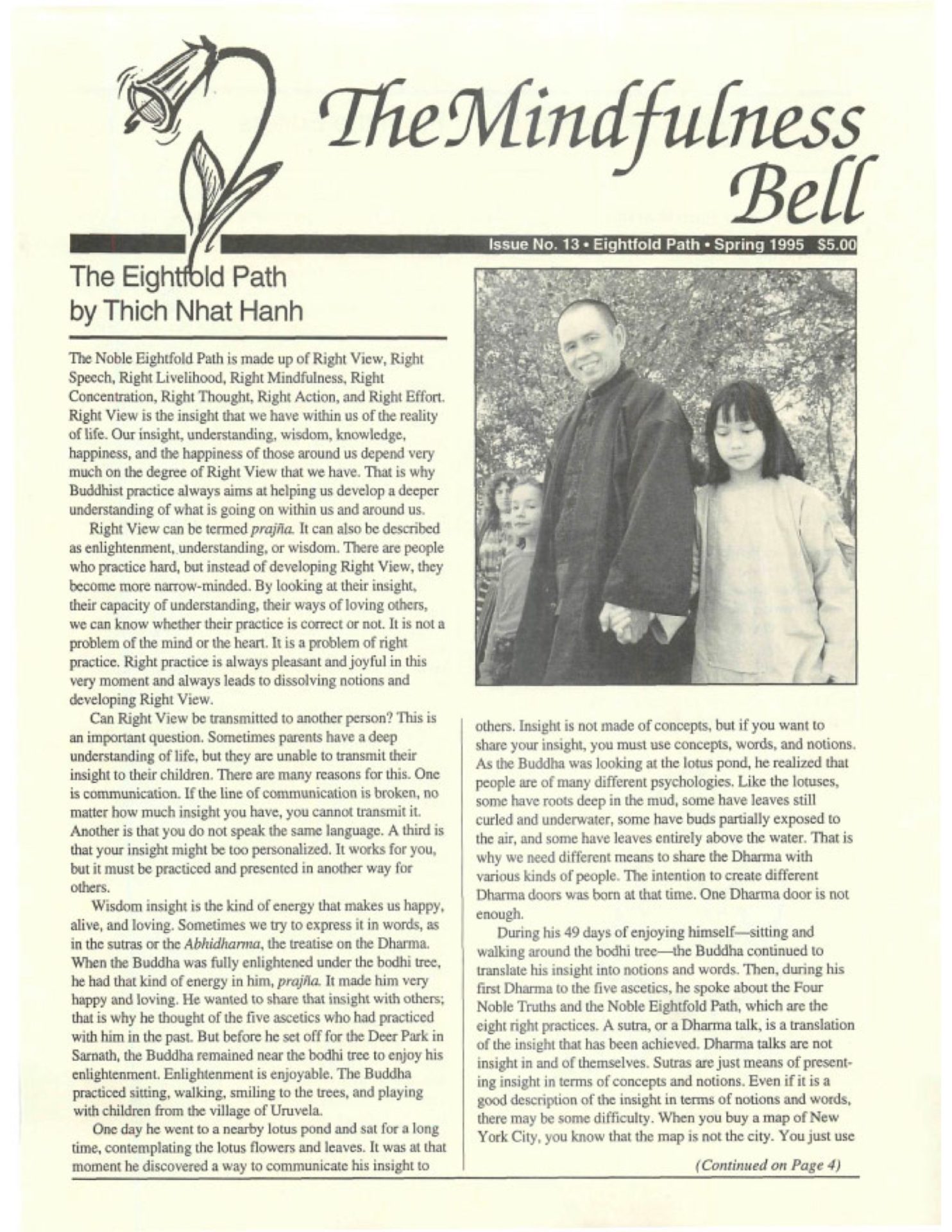By Svein Myreng
When we take up the practice of mindfulness, it feels wonderful. We enjoy a new calm and serenity, see trees and the sky more vividly, and find pleasure in a community that values friendliness and equanimity. This is the “honeymoon” of mindfulness practice, to be enjoyed fully. But it doesn’t last in this way. After a while, there usually comes a time when we are assailed by the strangest thoughts and emotions. We wonder where the precious calm of our earlier meditation periods went,
By Svein Myreng
When we take up the practice of mindfulness, it feels wonderful. We enjoy a new calm and serenity, see trees and the sky more vividly, and find pleasure in a community that values friendliness and equanimity. This is the "honeymoon" of mindfulness practice, to be enjoyed fully. But it doesn't last in this way. After a while, there usually comes a time when we are assailed by the strangest thoughts and emotions. We wonder where the precious calm of our earlier meditation periods went, and our formerly lovable Sangha friends suddenly show the most unpleasant habits. Something feels rotten in this state of Dharma.
This is a common phase in the practice, and, believe it or not, a very useful one. As mindfulness helps our mind and body relax more deeply, long repressed "internal knots" start to dissolve and surface. We become aware of subtle thoughts, impulses, and feelings that we simply didn't notice earlier. Sometimes, our practice lets us get in touch with these "hidden" aspects, while our mindfulness is not yet strong enough for us to digest them fully. We easily project feelings or character traits onto others. Also, inevitable differences in temperament and conflicting interests become visible as we get more in touch with both ourselves and our Sangha sisters and brothers. Together, these factors can create turbulence in any Sangha, and usually, we cannot reduce them to simple questions of being right or wrong. At such times, many practitioners become deeply worried; after all, we sought peace, not a new place of conflict. Some may leave the Sangha and the practice altogether.
Three years ago, I stayed in Plum Village for a few months. There were various difficulties and tensions among members of the Sangha (including me), but we knew that we had to live with each other and find ways to solve our difficulties. (Happily, there are tools, like the "Beginning Anew" ceremony.) In this process, we got to know each other and ourselves more as real people, not just on the surface, and some true friendships developed from this.
C.G. Jung coined two useful terms: The persona is basically our self-image, the image we present to society. The shadow is the hidden aspects of ourselves, the parts that we don't want to see, are unable to see, and have never really been allowed to express. It takes a great (unconscious) effort to keep the shadow in the shadow, and liberating this energy makes life a lot richer.
When we accept the difficulties of the practice and stay with our Sangha and ourselves, we shed the light of mindfulness on the shadow. We get to know our Sangha friends on a deeper level than the persona, learning to appreciate them as real, multifaceted people. This helps us appreciate the multitude of mental factors that exist in the depths of ourselves as well. Fearless in relation to the unpleasant, we make peace within our Sangha and within ourselves. This is real maturation: moving from the concept of how we should be, to understanding how we are—changing all the time. If we leave when the Sangha honeymoon is over and search for another Sangha instead, we will never know this maturation, friendship, and deeper peace that comes through understanding and transforming difficulties. (In certain cases, though, we may have to acknowledge that a situation is really too harmful to stay in.)
As mindfulness deepens, we get more truly in touch with joy, peace, and life as a whole. I doubt that this will ever remove our difficulties completely, but it will give us a larger perspective and a deeper equanimity. I'm fond of Chinese Zen Master Xu Yun's expression, "a long enduring mind." He lived to be 120, so he should know! Even with less longevity, a long enduring mind, a passion to go more deeply, is a real gift.
Svein Myreng, True Door, is an adult education teacher in Oslo, Norway.

